Since last year we have been logging reports from area residents of snake encounters. The purpose of this is education. We are learning which species people most frequently encounter, what time of year different species are encountered, and where they are being encountered. Here is the 2023 3rd Quarter Update.
To date – we have encountered 24 of the 40 species (60%) known to inhabit the Pensacola Bay area.
The most frequently encountered snake has been the cottonmouth. This species has been encountered 45 times. It has been seen every month this year and at the following locations – north and south Escambia County as well as north and south Santa Rosa County.
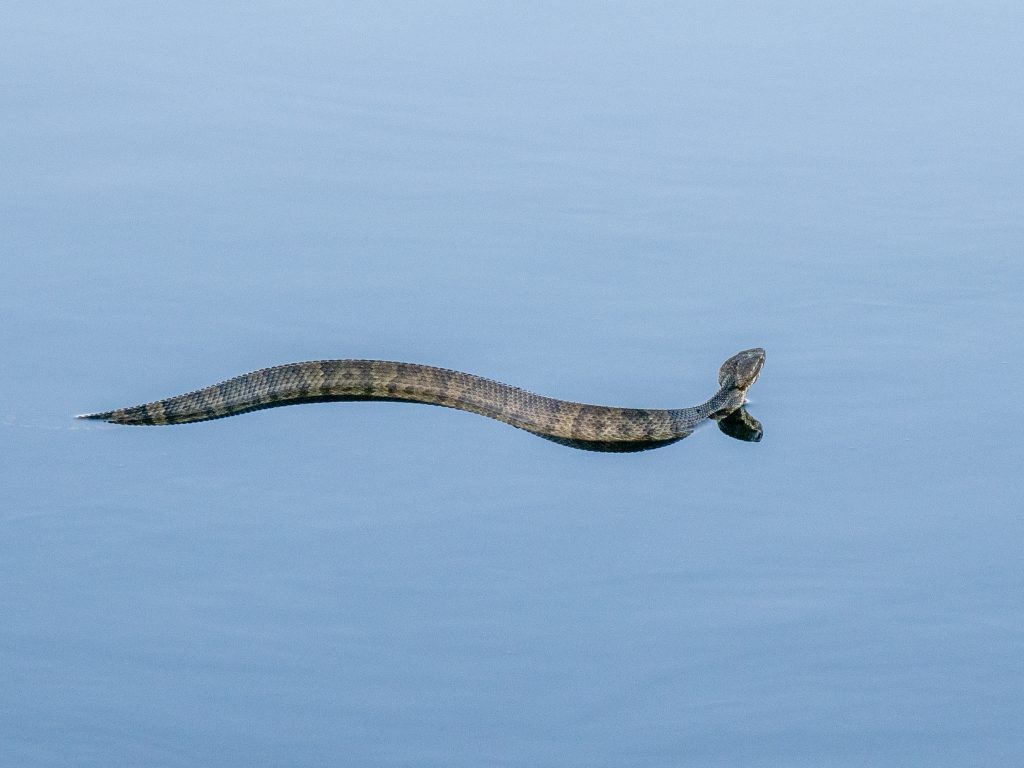
The second most frequently encountered snake has been the southern black racer. This species has been encountered 35 times and every month except January. Locations reporting this snake included – north and south Santa Rosa County, as well as north and south Escambia County.
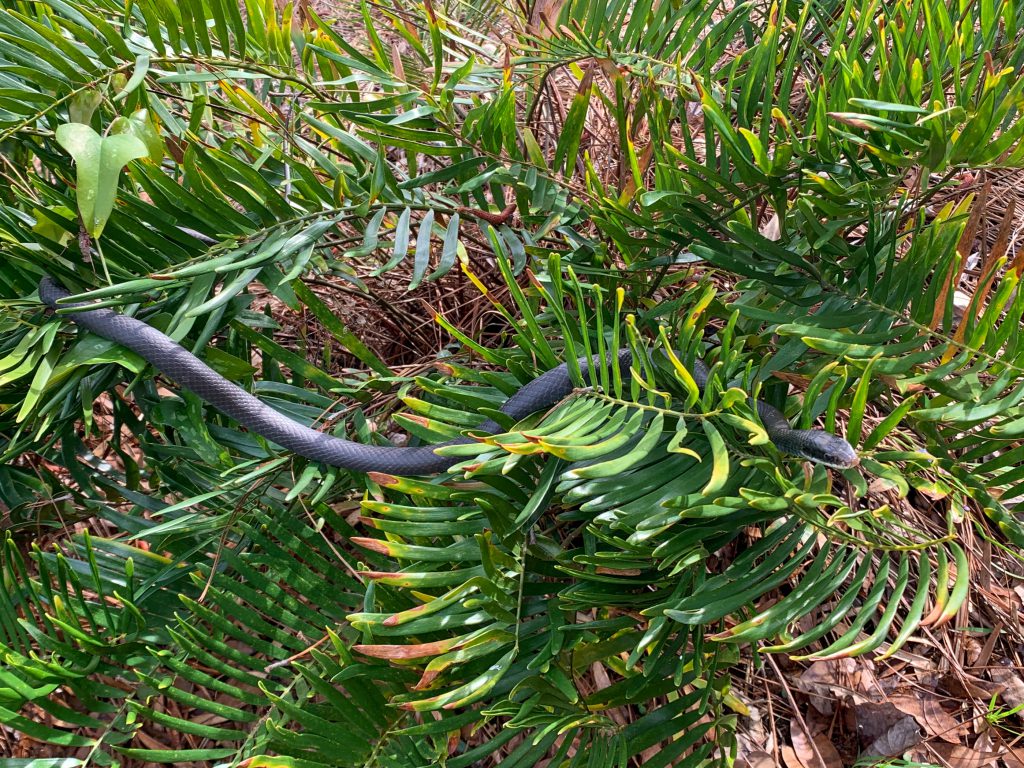
The third most frequently encountered snake has been the banded water snake. This species has been encountered 26 times and 25 of those were last winter and spring – the snake was only reported once during the summer and has not been reported this fall. It was encountered from north and south Santa Rosa County as well as north and south Escambia County.
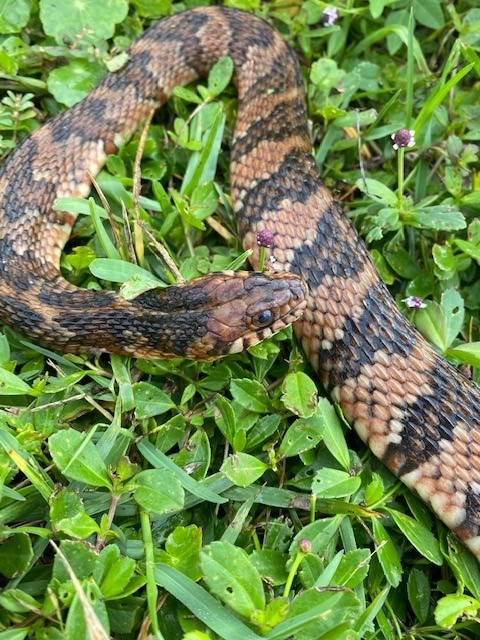
Reports by snake groups…
Small Snakes – 4 of the 7 species (57%) have been encountered. The most common have been the Florida red-bellied snake and the Southern ring-necked snake. These have been reported from north Escambia County, south Escambia County, north Santa Rosa County, Pensacola, Milton, and UWF.
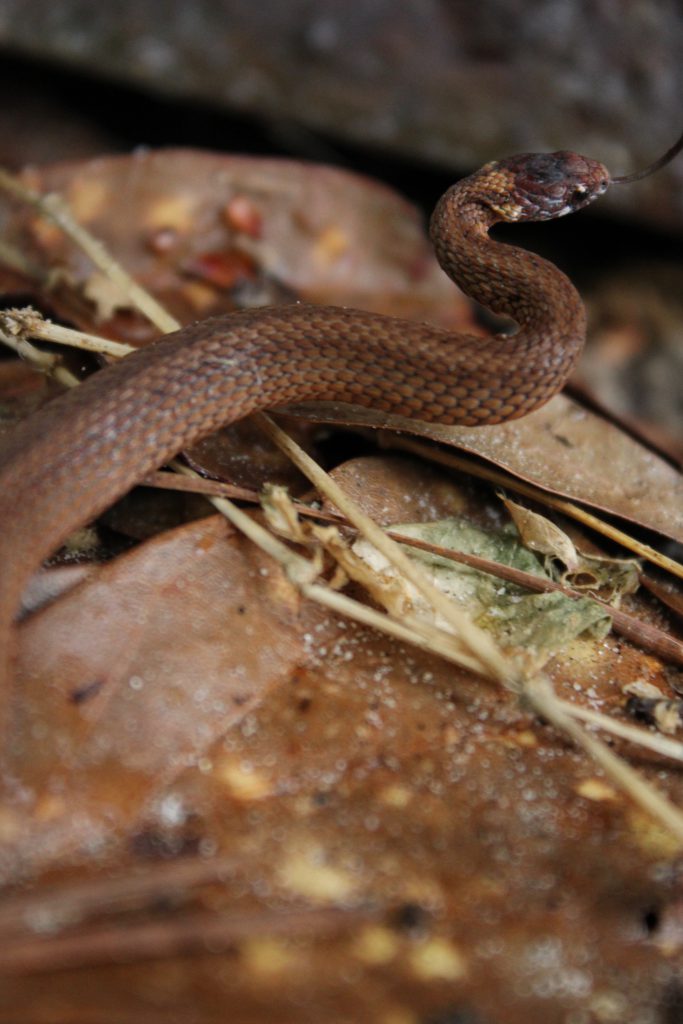
Mid-Sized Snakes – 5 of the 8 species (63%) have been encountered. The most common has been the Eastern garter snake. It has been reported from north Santa Rosa County, south Escambia County, south Santa Rosa County, and north Escambia County.
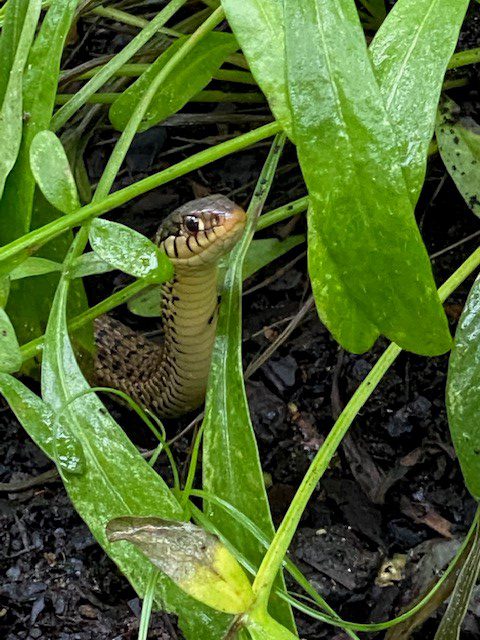
Large Snakes – 6 of the 7 species (86%) have been encountered. The most common has been the Southern black racer followed by its close cousin the Eastern coachwhip. The only large snake not encountered so far this year has been the Eastern indigo snake, which is a threatened species and encounters in the wild have not been documented since the late 1990s. Coachwhip encounters have occurred from south Escambia County, north Santa Rosa County, and south Santa Rosa County.
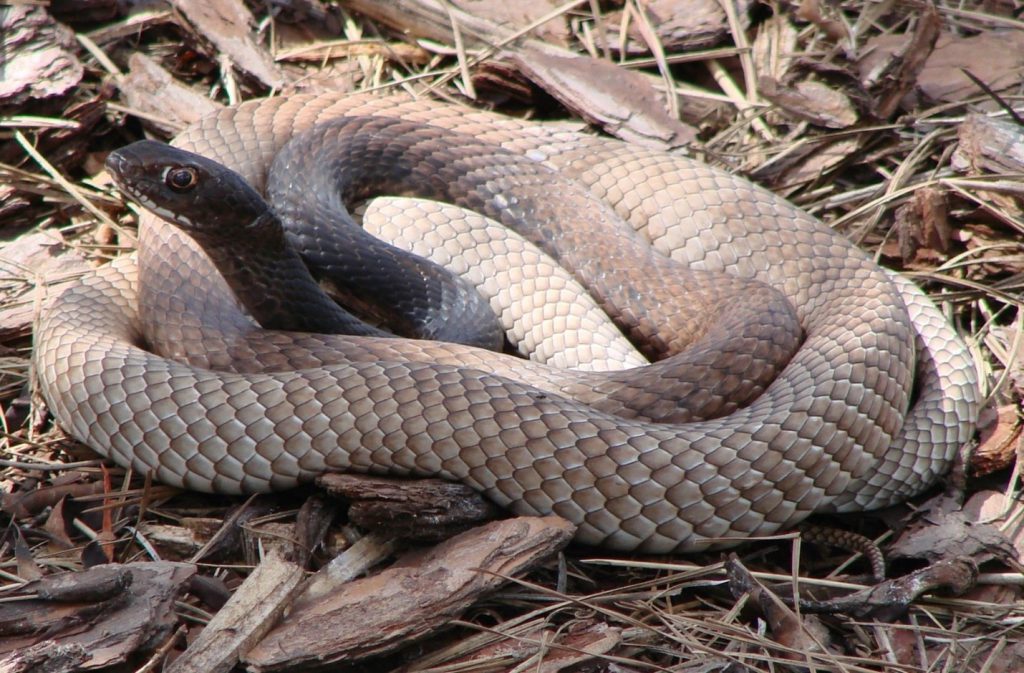
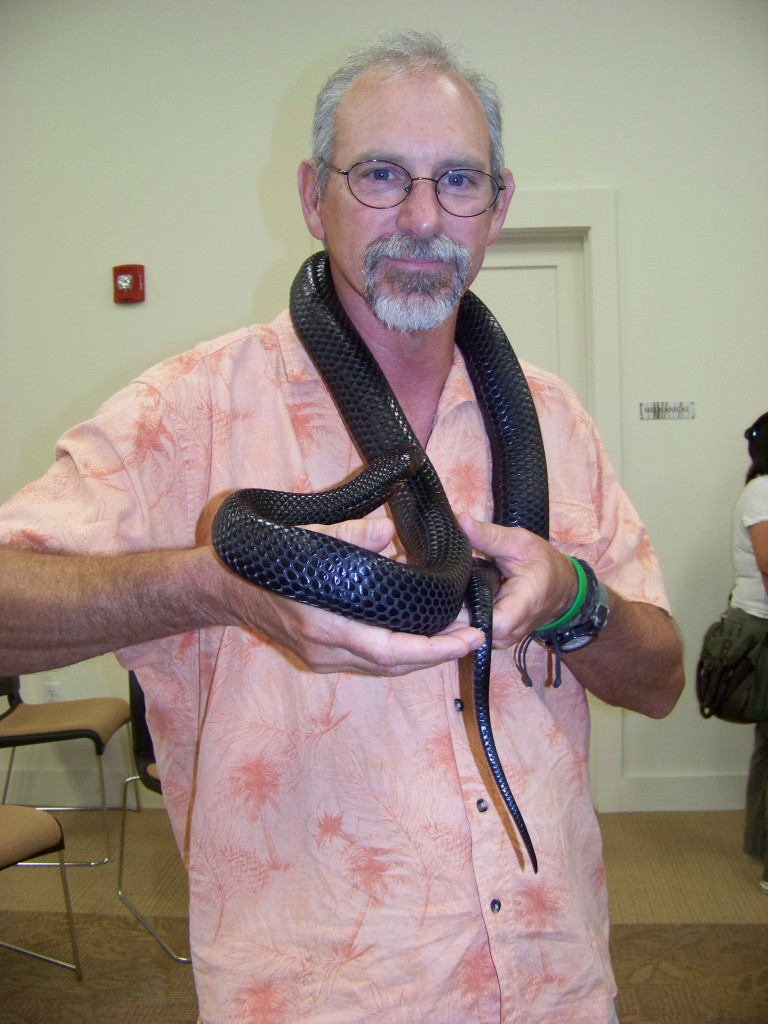
Water Snakes – 4 of the 13 species (31%) have been encountered. The most common has been the Banded water snake followed by the Brown water snake. The Brown water snake has been encountered on the Choctawhatchee River, Perdido River, Blackwater River, Escambia River, and south Escambia County.
Venomous Snakes – all 4 venomous species in our area have been encountered (100%). The most common has been the Cottonmouth followed by the Eastern diamondback rattlesnake. The diamondback has been encountered from south Escambia County, north Santa Rosa County, and south Santa Rosa County. With high interest in venomous snakes, the other encounters include the Dusky pygmy rattlesnake, which has been encountered from south Escambia County, and north Santa Rosa County. The Eastern coral snake has only been encountered once and that was from south Santa Rosa County.
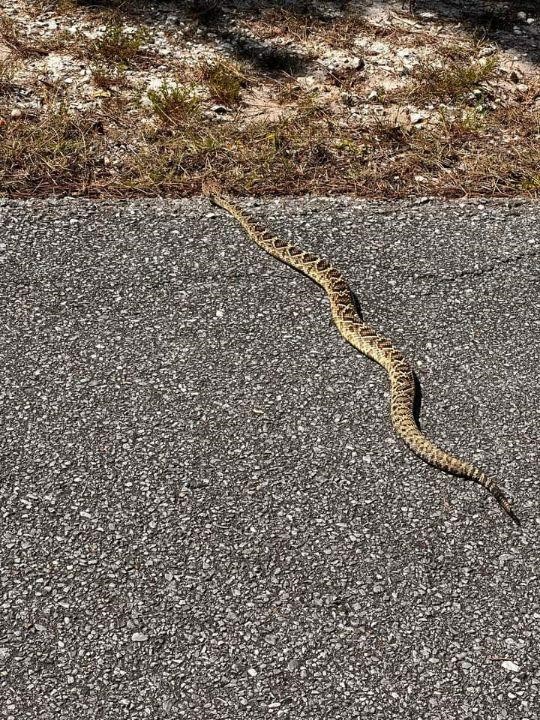
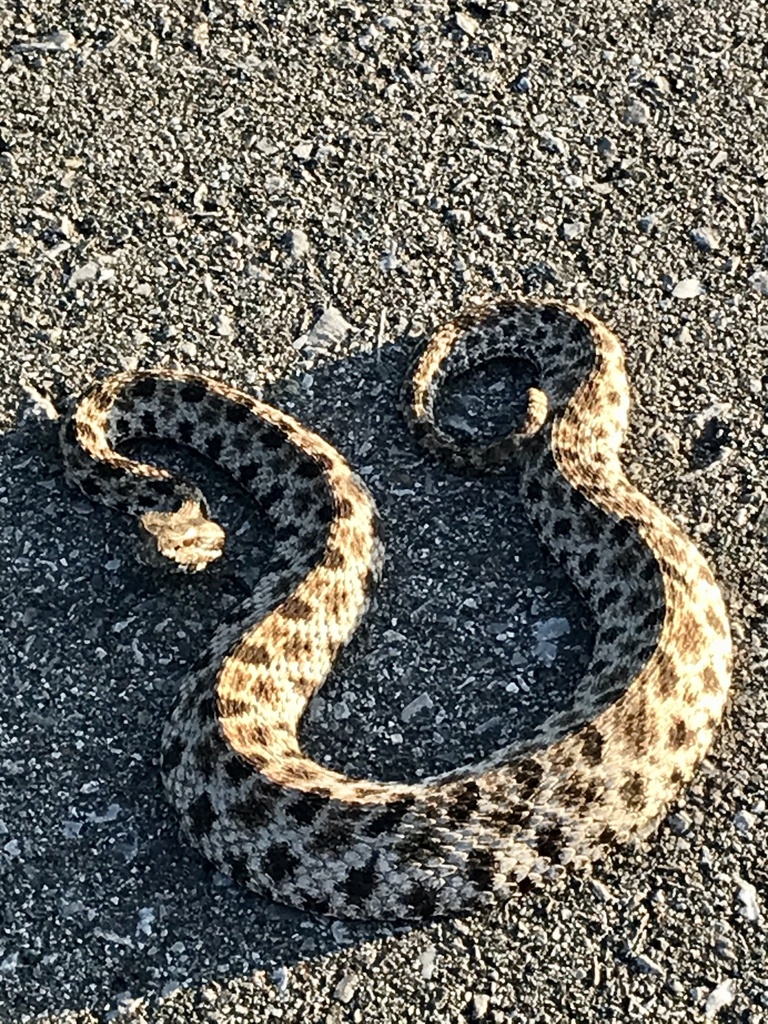
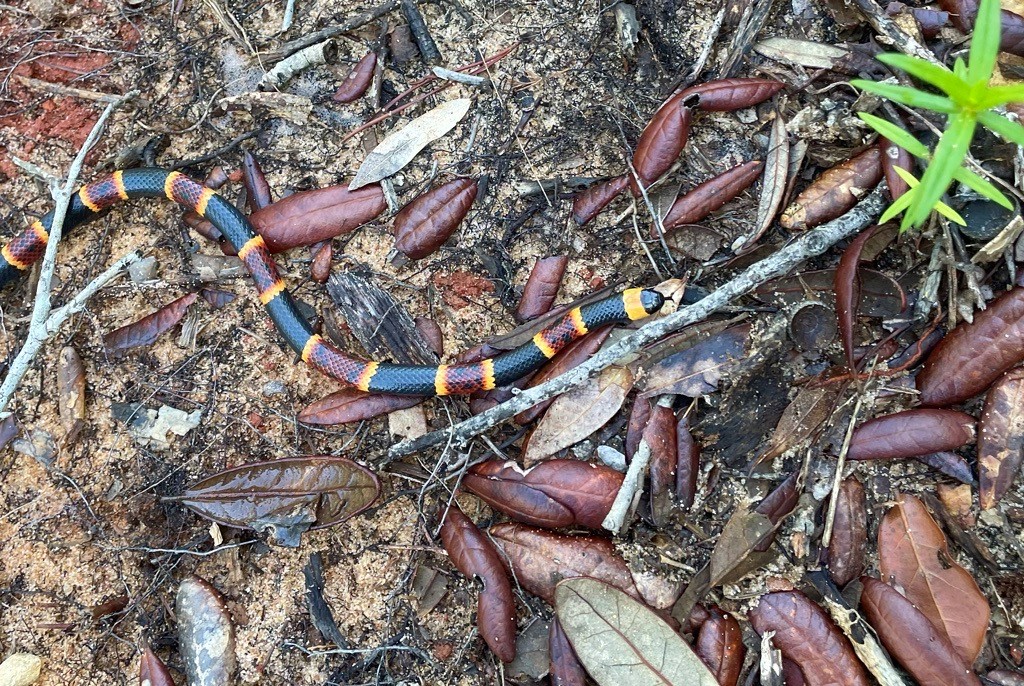
Rare Encounters – those that have only been encountered once this year…
Rough earth snake was encountered during September from south Escambia County.
Rough green snake was encountered during August from north Santa Rosa.
Eastern hognose was encountered during July from north Santa Rosa.
Eastern kingsnake was encountered in February from north Escambia County.
Eastern coral snake was encountered in June from south Santa Rosa County.
Florida pine snake was encountered during the winter and spring from north Santa Rosa County.
Seasonal Encounters
Winter – 57 encounters, 13 species.
Spring – 89 encounters, 20 species.
Summer – 52 encounters, 18 species.
- Rattlesnakes on Our Barrier Islands; Part 5 – Reproduction - January 12, 2026
- Rattlesnakes on Our Barrier Islands; Part 4 – Thermoregulation - December 29, 2025
- Rattlesnakes on Our Barrier Islands; Part 3 – Envenomation - December 22, 2025
